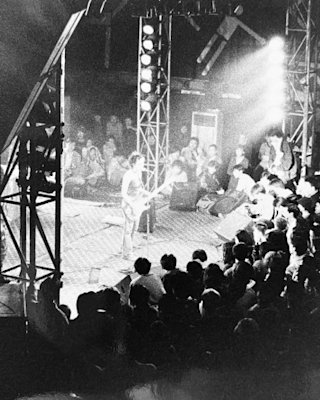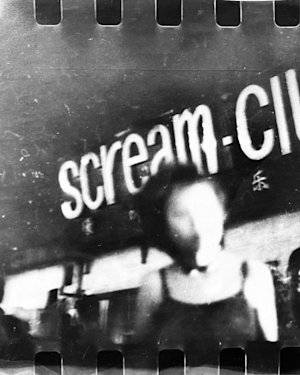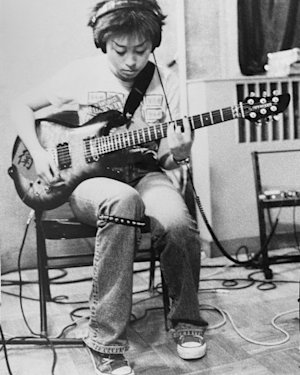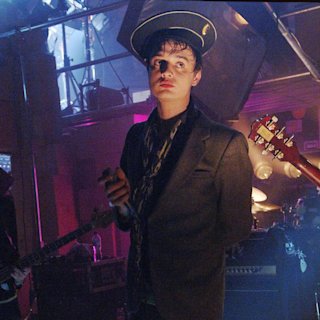
Hang On The Box preforming, Beijing 1999. (Photo: James Bollon)
In 1999, six months after their first gig, Chinese all-female punk band Hang On The Box surprised music fans everywhere when they appeared on the cover of the local edition of US publication Newsweek. This was a crucial moment in their home country – and specifically in Beijing – that spotlighted a vibrant scene that had rarely featured in any Westernised media.
Rock ‘n’ roll had an impact in China in the mid-‘80s, as the country under Deng Xiaoping’s premiership opened doors to international influences. But it was in a state of existential crisis by the start of the new decade as Cantopop dominated the airwaves. In between the roast duck restaurants and hutong alleys of the capital, nonetheless, a new generation was fast learning the basics from pirated CDs and tapes from Hong Kong.
Karaoke parlours and bars like the legendary Scream Club soon offered a place for fledgling artists to perform (with the latter even evolving into a record label). Before long, as The Guardian reported in 1999, a small army of “scruffy, concrete-jungle waifs” with “spiky red hair and bondage trousers” were making a lot of noise with their second-hand electric guitars.
Punk emerged from the underground in Beijing in the 90s, with venues like Scream Club marking an epicentre for the movement.

Gia Wang at the legendary Scream Club. (Photo: James Bollon)
The Beijing scene was male-dominated, with acts like Anarchy Boys echoing the sounds of Western punks from a generation prior. With Marshall amps amongst their arsenal, they performed riotous gigs and flogged demo tapes with the words “Chinese Oi! Oi! Oi! No RACIST” scrawled on their sleeves. But Scream Club, the city’s short-lived punk focal point, also gave a platform to the first all-female bands of their kind – like Cobra and Hang On The Box.
In the middle of a male-dominated scene, an all-female act landed themselves a cover feature with a major US publication. It proved to be a watershed moment.

Hang On The Box preforming at the Scream Club, 1998. (Photo: James Bollon)
The latter’s Newsweek cover appearance was seismic for the teen-aged group, who had previously faced ridicule on the local scene. But while China itself might not have fully embraced the band (they would struggle to find gigs at home despite their cult status), they did help shift attitudes towards female rockers in the country. By the time they released the album ‘No More Nice Girls’ in 2007, more and more Chinese acts were including women in their line-ups, while riot grrrl bands like Xiao Wang are among the hot names on the scene today.

Gia Wang vocalist in Hang On The Box. (Photo: James Bollon)
Hang On The Box also opened up opportunities for Chinese artists overseas, stoking interest in the local music scene in the process. Alongside fellow Scream Club alumni Brain Failure, they were one of the first Chinese acts to play at SXSW Music Festival in the States, enabling a rare cross-fertilisation of two otherwise distinct musical cultures. In their wake, events such as Beijing Pop Festival brought punk forefathers like New York Dolls and Marky Ramone (The Ramones) to China to perform alongside hot local talents. This vital musical inter-mingling between East and West continues to this day.

Scream Club was a place for fledgling artists to perform. (Photo: James Bollon)


